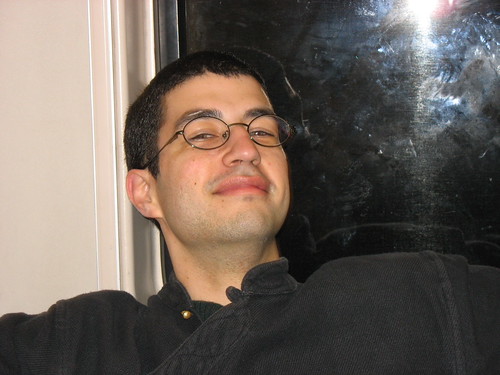
Toni Morrison's Paradise
Begin: 11/8/07
End: 11/16/07
Quality: Nine out of Ten.
Reason: Reading Plan.
Genre: Fiction.
Original Language: English.
Date of Publication: 1989.
Fog Index: 9.4/78% are harder.
Flesch Index: 69.8%/82% are harder.
Flesch-Kincaid Index: 7.4/77% are harder.
Complex Words: 8%/82% have more.
Number: First.
Synopsis: Dual stories going on in this book. We have the story of Ruby, Oklahoma, a all black town which is starting to have various issues. Then there is the story of the Convent, which is a few miles outside of town and while once a convent school is now a refuge for various women.
Thoughts:
Why does Toni Morrison mesmerize me like she does? Hmm? I am not sure why or how but I find myself so completely and utterly swept away by her lyricism and the magical quality of the worlds which she creates. Paradise is no exception to this. It is not the easiest book in the world to read. The first time that I read it, I was pretty lost. I think I have a better grasp on it but I know that there is still a lot in that book that I still need to discover and reflect on. And maybe that is why I am so into Toni Morrison because she writes books that have to be grappled, like Jacob and the Angel and afterwards you are granted a boon of wisdom. Her books aren’t just mindless entertainment. They are mysteries to be unraveled, they are to be marinated in your mind for weeks and months and years and to go back to again and again.
Paradise is her hardest novel, at least for me, and it is the one that reminds me the most of Faulkner. The amount of characters, the way in which she describes the action of the novel, the mystery of who exactly is the white girl in the convent who dies, the sheer size and complexity which she creates, it all combines to make this not a tough book to get through but just one that is very difficult to get your mind around.
I guess I should start by talking about that white girl. This is how the novel opens…“They shoot the white girl first. With the rest they can take their time. No need to hurry out here. They are seventeen miles from a town which has ninety miles between it and any other. Hiding places will be plentiful in the Convent, but there is time and the day has just begun. (3) The first time that I read this book, I spend too much time trying to figure out who exactly the white girl is but I believe that Toni Morrison does not want us to know. And she is very good about avoiding mention of race. And I think one of the main points of this novel is that it really does not matter. We get to know these women inside and out so dos it even matter what color their skin is? Does it really matter at all after their full stories are revealed?
My main problem with the novel was just the sheer complexity of it. I felt like it needed to come with it’s own genealogy chart so I could get a handle on the people of Ruby. Maybe that will be the project for the next time that I read this book.
Another problem that I have is that I see so much in this novel that I cannot fully articulate. It is going to have to marinate for a while longer, maybe the next time that I read it, I will be able to talk about it more.
I did love this book. I can say that without a doubt. It may not be my favorite by Morrison but its still pretty fucking good, even though it is a mind-fuck. It’s the kind of book I want to suck the nectar out of, that I want to ingest and contemplate for a long time.
“She had to stop nursing resentment at the townspeople’s refusal of her services; stop stealing penny revenge by ignoring what was going on and letting evil has its way. Playing blind was to avoid the language God spoke in. He did not thunder instructions or whisper messages into ears. Oh, no. He was a liberating God. A teacher who taught you how to learn, to see for yourself. His signs were clear, abundantly so, if you stopped steeping in vanity’s sour juice and paid attention to His world.” (273)
I saw a lot of patriarchal vs. matriarchal issues in this novel. This might be due to my own beliefs and ideology.
“They shoot the white girl first. With the rest they can take their time. No need to hurry out here. They are seventeen miles from a town which has ninety miles between it and any other. Hiding places will be plentiful in the Convent, but there is time and the day has just begun. (3)
That is how this novel opens up. The “New Fathers” of Ruby, an all black town in Oklahoma, go to the convent because they feel that somehow the woman at the covent are causing the decay they see occurring in Ruby.
“The chill intensifies as the men spread deeper into the mansion, taking their time, looking, listening, alert to the female malice that hides here and the yeast-and-butter smell of rising dough.” (4)
“How exquisitely human was the wish for permanent happiness, and how thin human imagination became trying to achieve it. Soon Ruby will be like ant other country town: the young thinking of elsewhere; the old full of regret. The sermons will be eloquent but fewer and fewer will pay attention or connect them to everyday life. How they can hold it together, he wondered, this hard-won heaven defined only by the absence of the unsaved, the unworthy and the strange? Who will protect them from their leaders?” (306)









